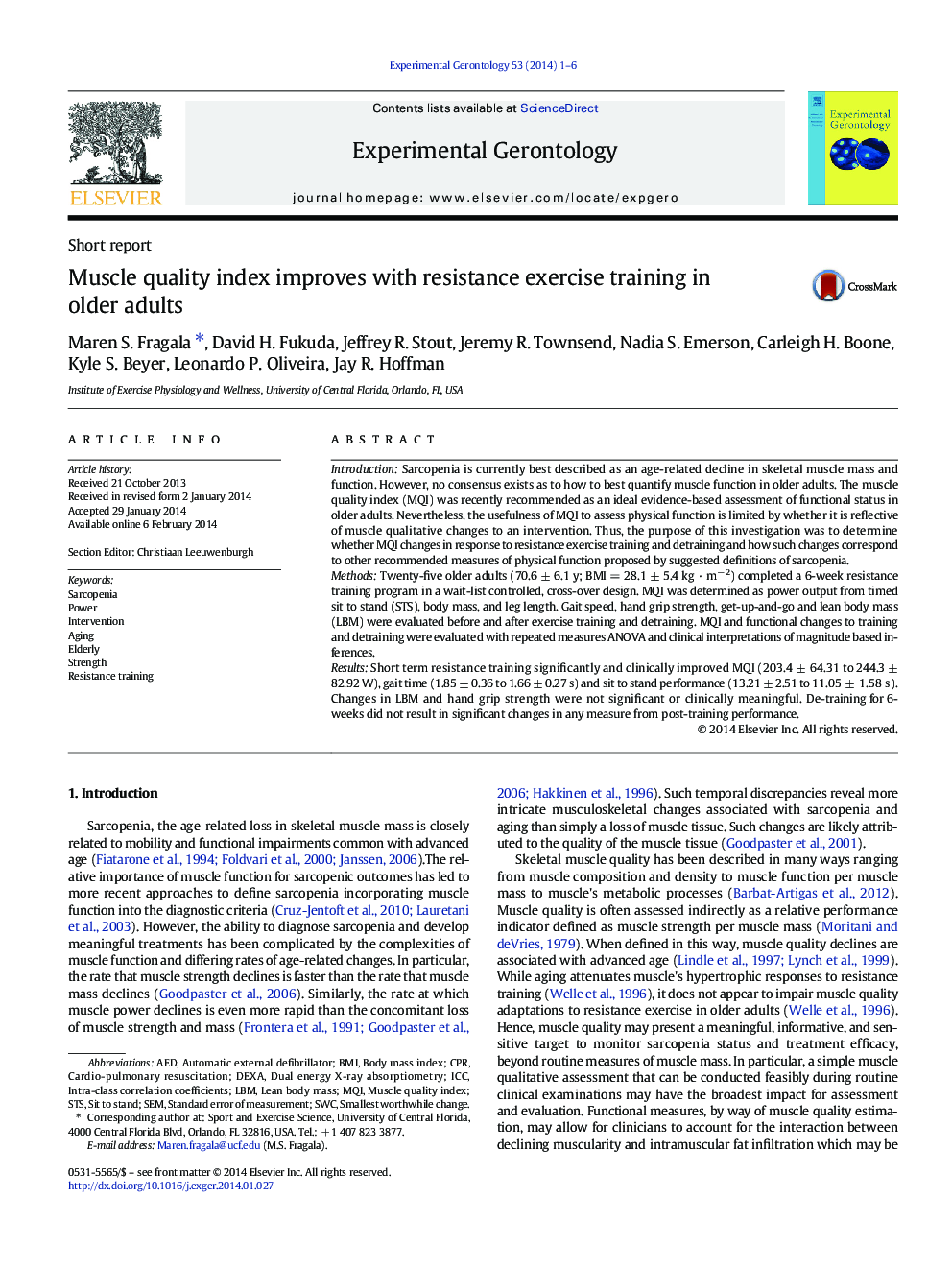| کد مقاله | کد نشریه | سال انتشار | مقاله انگلیسی | نسخه تمام متن |
|---|---|---|---|---|
| 1906245 | 1534888 | 2014 | 6 صفحه PDF | دانلود رایگان |
• Muscle quality index is a novel evidence-based assessment of functional status.
• Muscle quality index improved with resistance exercise training in older adults.
• Changes in muscle quality index exceeded improvements in other functional measures.
• Muscle quality index assessments are recommended in future interventions.
IntroductionSarcopenia is currently best described as an age-related decline in skeletal muscle mass and function. However, no consensus exists as to how to best quantify muscle function in older adults. The muscle quality index (MQI) was recently recommended as an ideal evidence-based assessment of functional status in older adults. Nevertheless, the usefulness of MQI to assess physical function is limited by whether it is reflective of muscle qualitative changes to an intervention. Thus, the purpose of this investigation was to determine whether MQI changes in response to resistance exercise training and detraining and how such changes correspond to other recommended measures of physical function proposed by suggested definitions of sarcopenia.MethodsTwenty-five older adults (70.6 ± 6.1 y; BMI = 28.1 ± 5.4 kg · m− 2) completed a 6-week resistance training program in a wait-list controlled, cross-over design. MQI was determined as power output from timed sit to stand (STS), body mass, and leg length. Gait speed, hand grip strength, get-up-and-go and lean body mass (LBM) were evaluated before and after exercise training and detraining. MQI and functional changes to training and detraining were evaluated with repeated measures ANOVA and clinical interpretations of magnitude based inferences.ResultsShort term resistance training significantly and clinically improved MQI (203.4 ± 64.31 to 244.3 ± 82.92 W), gait time (1.85 ± 0.36 to 1.66 ± 0.27 s) and sit to stand performance (13.21 ± 2.51 to 11.05 ± 1.58 s). Changes in LBM and hand grip strength were not significant or clinically meaningful. De-training for 6-weeks did not result in significant changes in any measure from post-training performance.
Journal: Experimental Gerontology - Volume 53, May 2014, Pages 1–6
